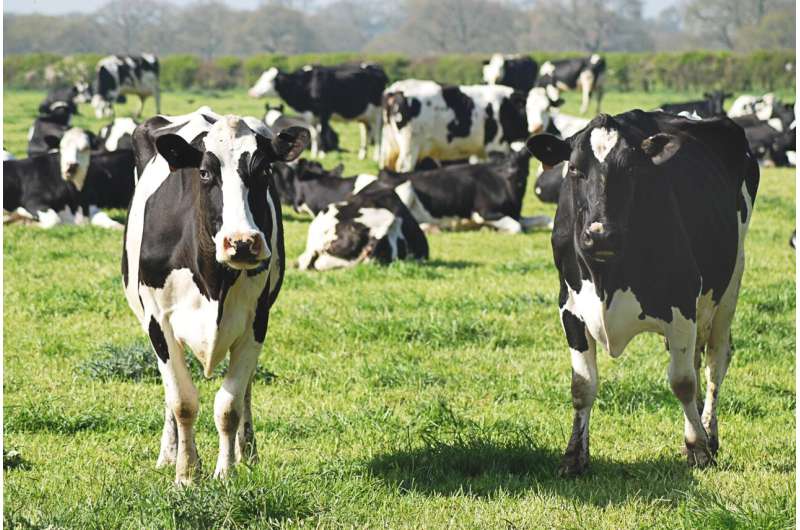This article has been reviewed according to Science X's editorial process and policies. Editors have highlighted the following attributes while ensuring the content's credibility:
fact-checked
trusted source
proofread
New report outlines microbial solutions to mediate methane emissions

The American Academy of Microbiology has released a new report, The Role of Microbes in Mediating Methane Emissions. The report highlights recommendations to further the scientific community's understanding of microbial processes of methane production and consumption to mitigate methane emissions and address climate change.
Microbes can influence climate change through biogeochemical cycles that consume or produce greenhouse gases. Increased levels of methane are a main driver of rising global temperatures.
Methane's warming power is about 80 times more potent than carbon dioxide over a 20-year period. Reducing methane is an effective way to slow the rise of global temperatures in the near term. Microbes are major consumers and producers of methane, so understanding the diverse metabolic capabilities of microbes can help scientists better develop microbial solutions that address the issue of methane emissions.
"By understanding the roles of microbes in mediating methane emissions, we open up a wide range of promising solutions to address the climate challenge," said Vanessa Sperandio, Chair of the Academy Governors. "More than ever, the scientific community needs to work together to urgently bring forward these solutions."
The report is the result of the discussions and deliberations of participating experts at the colloquium on May 31 and June 1, 2023, organized by the American Society for Microbiology (ASM) and the American Geophysical Union. The participants' expertise covered a variety of disciplines and sectors, and they identified gaps in knowledge that must be explored further and highlighted potential strategies to address methane emissions.
The recommendations in the report aim to help advance the development of solutions that leverage microbes to mediate methane emissions from four main sources: enteric fermentation in ruminant animals (such as cows or sheep), animal wastes, rice paddies and landfills.
This colloquium is part of the Academy's 5-year Climate Change and Microbes Portfolio that focuses on furthering scientific understanding of climate change and microbes.
To complement the new report and serve as a practical next step, ASM will release a Microbial Methane Mitigation research roadmap in December, outlining current knowledge gaps and first-order research priorities for experts to use microbes to combat increasing methane emissions.
More information: Read the Recommendations
Learn more about the impact of microbes on climate change on ASM's Microbes and Climate Change resource page.
Provided by American Society for Microbiology





















